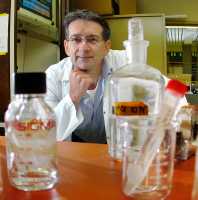Author Interviews, Dental Research / 07.11.2016
Dental Occlusion Affects Standing Balance in Unstable Conditions
MedicalResearch.com Interview with:
Sonia Julià-Sánchez, Ph.D.
Departament de Fisiologia i Immunologia
Universitat de Barcelona
MedicalResearch.com: What is the background for this study? What are the main findings?
Response: Contradictory results are still reported on the influence of dental occlusion on the balance control. While most literature have evaluated this relationship in static conditions with inconclusive results, the topic is still a matter of debate. However, less research has focused on the correlation of dental occlusion and balance control in unstable surfaces, even though the higher sensitivity of the unstable platforms to examine individual responses to translational and angular perturbations.
Moreover, when we talk about the influence of dental occlusion on the body balance, the study of the specific malocclusal traits influencing balance control should be of extremely importance to apply the proper treatment.
Our study was focused on the influence of dental occlusion and specific malocclusal traits on the body balance control at extreme levels of stability. We found that body balance was significantly influenced by dental occlusion in unstable conditions.
Moreover, specific occlusal traits significantly influencing postural control were: Angle Class, crowding, midline deviation, crossbite, anterior open bite and overjet.
(more…)










